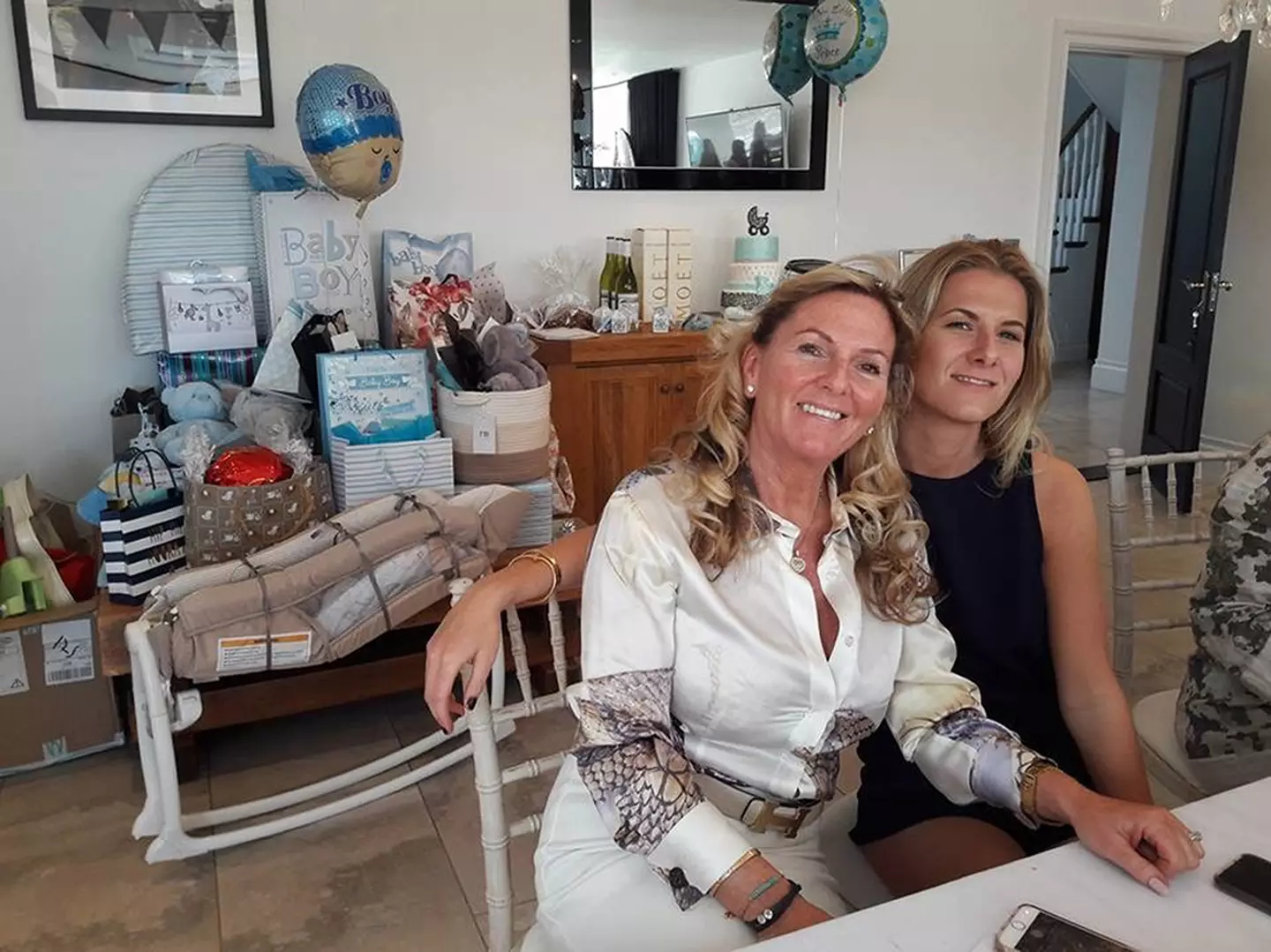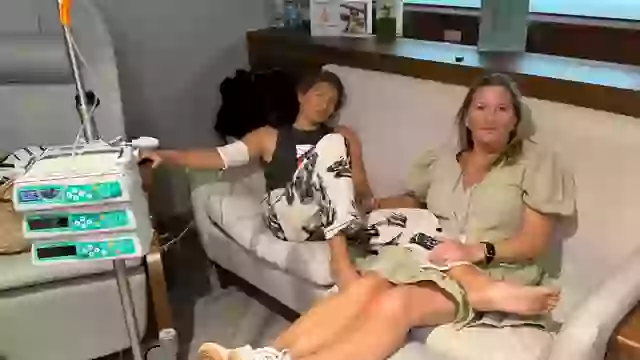Olivia Knowles, a 33-year-old woman from Blackpool, UK, has been given just months to live after her symptoms were initially mistaken for long Covid. Her heartbreaking story of a delayed cancer diagnosis has shed light on the dangers of misdiagnosis and the devastating impact it can have on patients. Olivia’s case is a powerful reminder of how important it is for doctors to thoroughly investigate unusual symptoms, as well as the urgent need for continued research into treatments for life-threatening diseases like cancer.
A Misunderstood Illness: Long Covid or Something More?
In late 2023, Olivia began experiencing extreme fatigue, persistent headaches, and overall tiredness. Given the widespread nature of long Covid at the time, doctors quickly attributed her symptoms to this lingering condition. Long Covid, which is characterized by symptoms like exhaustion, brain fog, and breathlessness, had already affected millions globally, leading many healthcare providers to initially jump to conclusions based on the most common diagnoses of the time.
But Olivia’s condition worsened when she started suffering from intense toothache, a symptom that pushed her to seek further medical attention. It was at this point that her diagnosis took a dramatic turn. After additional tests, Olivia was told she had acute myeloid leukaemia (AML), a rare and aggressive form of cancer that attacks the blood and bone marrow, leading to symptoms like fatigue, weakness, frequent infections, and breathlessness.
AML is known for its rapid progression and requires immediate treatment to prevent severe complications. Olivia’s world was turned upside down as she began to realize that her struggle with unexplained symptoms was not due to long Covid, but instead a far more serious and life-threatening disease.

Olivia was initially told by doctors her symptoms were due to long Covid (PA REAL LIFE)
Treatment and Temporary Recovery: A Ray of Hope
After her diagnosis, Olivia received a stem cell transplant in December 2024. For a time, it seemed like the treatment had worked. In fact, just a few months later, doctors declared her cancer-free. Olivia felt immense relief and hope, believing she had turned the corner and could finally start living her life again. She resumed her routine, which included training and spending quality time with her family.
However, the relief was short-lived. Just one week after being told she was cancer-free, Olivia received devastating news that the leukemia had returned. This relapse was an unexpected shock for both her and her healthcare team, as her recent blood work had shown no signs of concern. “I’d been in for blood literally one week before. The blood work had been very good, no reason for concern,” Olivia explained. “One week later, I showed active disease. My counts were off.”
This sudden relapse took everyone by surprise. Olivia’s doctors were blindsided, especially considering how well the initial stem cell transplant had gone. This setback made Olivia feel like her hard-won progress had been taken from her in an instant.

Olivia with her mother Susan (PA REAL LIFE)
Coping with the Setback: Olivia’s Resolve
Despite the crushing disappointment of her relapse, Olivia remains determined to fight. In mid-March 2025, she began a new chemotherapy regime and is now preparing to take part in clinical trials to find a potential cure for her condition. The road ahead is uncertain, but Olivia’s resolve to continue battling for her life is stronger than ever.
Olivia also decided to raise awareness for clinical research and cancer treatment by walking 20 miles around Fairhaven Lake. This walk, organized on March 16, 2025, was a powerful way for Olivia to raise funds for cancer research at King’s College Hospital. “I did this (walk) so one day the next 33-year-old, the next one-year-old, the next one-month-old, isn’t an ‘almost’,” she said, reflecting on her desire to help future patients who might face the same struggles.
The Emotional Toll and What’s Next
The emotional impact of her diagnosis and relapse has been profound. Olivia expressed how much she misses her normal routine, particularly going to work and training. “All I really miss now is going to work and training. That’s all I want – just my normal day and my normal routine,” she shared.
Her wish to regain normality and return to her day-to-day activities is something many cancer patients can relate to. Cancer treatments, while life-saving, can be exhausting, both physically and emotionally. Yet, despite everything, Olivia remains focused on making the most of the time she has left and on continuing her fight with unwavering strength.
Her story is also a stark reminder of the importance of clinical research and funding for cancer treatments. As Olivia continues to undergo chemotherapy and look forward to participating in clinical trials, she remains hopeful that her efforts will lead to better outcomes for those who will follow in her footsteps.
Full Story:
For more information on how medical conditions can often be misdiagnosed and how patients can take charge of their health, check out these helpful articles:
The Importance of Early Diagnosis and Support Systems
Olivia’s journey highlights the importance of early and accurate diagnosis, especially when symptoms overlap with common conditions like long Covid. Misdiagnosis can delay critical treatment, as was the case with Olivia, whose leukemia went undetected for months due to the confusion surrounding her symptoms. Early diagnosis is key to improving survival rates, and healthcare professionals must take into account the full range of possible diagnoses when patients present with vague or non-specific symptoms.
In addition, Olivia’s story also emphasizes the importance of emotional and psychological support for cancer patients. The emotional toll of living with cancer, especially after a relapse, can be overwhelming. Patients need access to mental health resources and support groups to help them cope with their diagnosis and treatment. Olivia’s decision to raise awareness for clinical research shows how important it is to continue supporting not only cancer treatments but also the emotional needs of those facing life-threatening illnesses.
Conclusion: A Fight Against All Odds
Olivia Knowles’ story is a powerful reminder of the resilience and determination of those battling cancer. From her initial misdiagnosis to the devastating relapse, Olivia’s journey is filled with challenges. But through it all, she continues to fight, raising awareness and funds for cancer research, and hoping to make a difference for future patients.
Her story is an inspiration for anyone facing a difficult diagnosis. It proves that, even in the face of overwhelming odds, it’s possible to remain hopeful and determined. Olivia’s fight is not just for her own life, but for the lives of others who will benefit from the ongoing clinical research and trials she is supporting.



